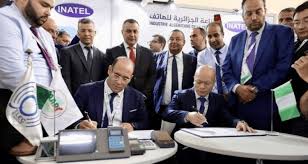
Algeria has signed a landmark $300 million agreement to supply Nigeria with two million electronic payment terminals, a deal that signals growing momentum for intra-African trade and digital transformation.
The agreement, unveiled during the 2025 Intra-African Trade Fair in Algiers, was sealed between Algeria’s Inatel and its Chinese partner, Morefun Electronic Technology. Senior officials present at the signing included ENTC CEO Chikh Abderrahim, Morefun’s Executive Director, Algeria’s Minister of Trade Sid Ali Zerrouki, and Omar Rekkache of the Algerian Agency for the Promotion of Investment (AAPI).
For Algeria, the deal marks a new phase in its digital economy strategy, moving from building internal infrastructure to exporting fintech hardware across the continent. Incentives such as VAT and customs exemptions have already helped boost electronic payments adoption at home, and now the country is positioning itself as a regional hub for payments technology.
Nigeria, meanwhile, stands to benefit at a critical moment. The Central Bank of Nigeria has been pushing an ambitious retail payments reform agenda, including a mandate that all point-of-sale devices must comply with ISO 20022 standards and feature geo-tagging by the end of 2025. The addition of two million new terminals could help close existing infrastructure gaps, bring more merchants into the digital economy, and reduce reliance on cash transactions.
Analysts say the deployment of these devices could fast-track financial inclusion by extending digital payments to informal markets, rural communities, and small businesses. It also promises stronger oversight, with location-enabled transactions helping authorities curb fraud and money laundering.
Beyond its technical and economic implications, the agreement represents a symbolic shift: an African country exporting critical technology solutions to another African powerhouse. It underscores how regional collaboration can drive innovation, strengthen trade ties, and empower local economies without relying solely on external suppliers.
However, questions remain about implementation. Industry experts note that timelines for delivery, technical compliance, and equitable distribution of devices will be crucial. Ensuring that small merchants and rural traders benefit alongside large retailers could determine whether the initiative truly reshapes Nigeria’s payment landscape.
Still, the deal is widely seen as a step toward Africa charting its own digital future, with Algeria and Nigeria at the forefront of that transformation.



